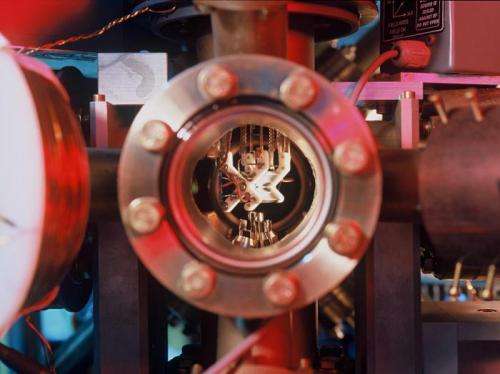Playing quantum tricks with measurements

A team of physicists at the University of Innsbruck, Austria, performed an experiment that seems to contradict the foundations of quantum theory—at first glance. The team led by Rainer Blatt reversed a quantum measurement in a prototype quantum information processor. The experiment is enabled by a technique that has been developed for quantum error correction in a future quantum computer.
Measurements on quantum systems have puzzled generations of physicists due to their counterintuitive properties. One of them is the fact that measurements on a quantum system are in general non-deterministic. This means that even if the state of the system is completely known, it is impossible to determine the outcome of a single measurement. Furthermore, the measurement alters the system's state so that a previous measurement will certainly return the same result as the first measurement. Thus the system is irreversibly altered by a measurement.
In their recent experiment, the scientists demonstrated that it is possible to reverse a measurement with the aid of a quantum error correction protocol. This seemingly contradicts the foundations of quantum theory which explicitly forbid the reversal of a quantum measurement. With a closer look it is easy to solve this riddle: The team around Philipp Schindler transfers the information of a single particle onto an entangled state consisting of three particles. If now an individual particle is measured, its original state can be reconstructed from the information residing in the remaining two particles which is not forbidden by the laws of quantum mechanics.
Provided by University of Innsbruck


















